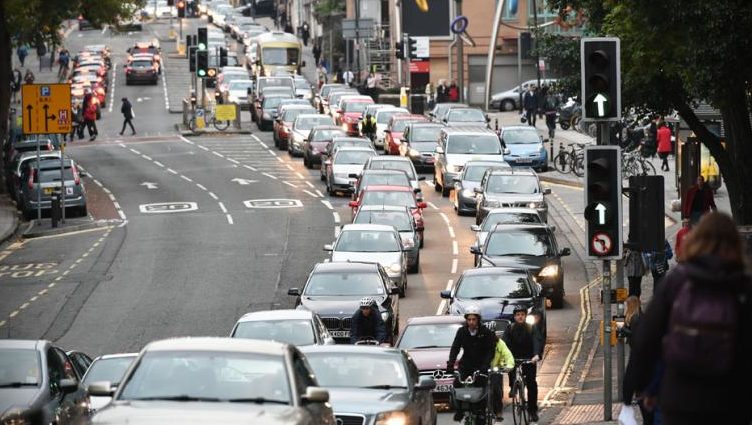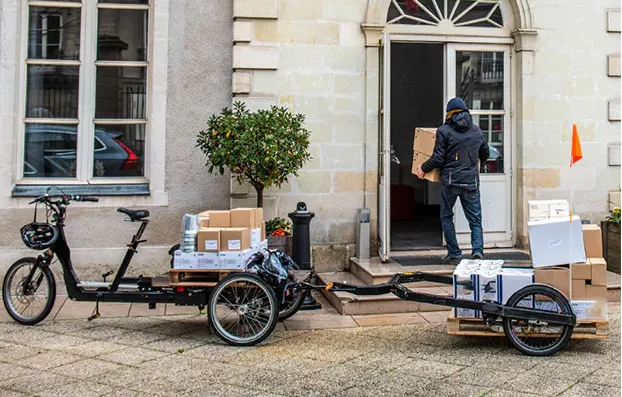
Photo: LGA
Transport powers must remain with cities, says UK council group
04 October 2023
by Christopher Carey
The UK’s Local Government Association has called on the government to trust councils with transport powers, following the announcement of plans to “back drivers”.
Last week the UK’s Prime Minister and Transport Secretary announced a new plan that would protect drivers from what they have described as “over-zealous traffic enforcement”, such as a reduction in speed limits and schemes that are seen to impact negatively on motorists.
“Councils want to work with the government to make our roads safe and attractive for everyone who uses them,” said Councillor Darren Rodwell, transport spokesperson for the Local Government Association.
“However, it is councils – who know their communities best – that should be trusted to make local transport decisions with their local residents, not Whitehall.
“They must continue to have the ability to work with local residents on any measures which can help improve road safety and air quality and reduce congestion.
“Removing the ability of all councils to enforce moving traffic violations would be a backwards step that will risk creating a two tier transport system between London and the rest of the country.”
What will change?
A review on the guidance surrounding 20 mph limits will be launched, as the UK government looks to prevent their use in areas “where it’s not appropriate”. Guidance around low traffic neighbourhoods (LTNs) will also be amended to ensure a new focus on local consensus.
The review into LTNs is ongoing, but the government is already examining how to stop the implementation of “15-minute cities”.
Speaking last week, UK Transport Secretary Mark Harper said: “Too often the private car is vilified when it has been one of the most powerful forces for personal freedom and economic growth.
“That’s why the government is taking the long-term, necessary decision to back the motorists who keep our country moving.
“We’re introducing a plan to ensure drivers can enjoy smoother journeys, park more easily and no longer face unfair and oppressive traffic enforcement measures.”
UK Prime Minister Rishi Sunak also commented on the proposed changes, saying: “For too long politicians have focused on the short-term decisions with little regard for the long-term impact on hardworking families.
“We’ve seen this consistently with people’s freedoms on transport. The clamp down on drivers is an attack on the day to day lives of most people across the UK who rely on cars to get to work or see their families.”
15-minute controversy
The 15-minute city – an urban planning concept aimed at providing people in cities with access to basic services within a quarter of an hour’s walk or bike ride of where they live – has become the subject of controversy in the UK.
Over the past year in particular, conspiracy theories have circulated on social media incorrectly claiming that such plans will limit people’s freedom of movement.
A poll in March from market research firm YouGov found that 62 percent of Britons would support their local authority adopting a target to make their area a ’15 minute neighbourhood’.
Several UK councils – including Canterbury, Ipswich and Bristol – have incorporated 15-minute cities into their policy plans, as well as cities across Europe including Paris, Barcelona, Copenhagen and Milan.
Carlos Moreno, Associate Professor at the Paris IAE – Panthéon Sorbonne University and creator of the 15-minute city concept, issued a statement, saying: “The recent statements from the British government, especially those from the Prime Minister Rishi Sunak, regarding his long-term assistance plan for motorists, raise deep concerns.
“They signify a baffling step back for a nation facing, like all others, the major challenges of this century, primarily the climate emergency.”
“Whether it’s about urban speed restrictions, dedicated bus lanes, low traffic neighbourhoods, leniency towards road infractions, or decisions urging cities to stop adopting the 15-minute city model, these stances overlook the pressing issues of a ‘boiling world’.”
Moreno urged the Prime Minister to reconsider his stance, and drew on his personal experience of the backlash against the concept.
“Last spring, my family and I faced harassment, including death threats, from conspiracy theorists fuelled by false information, promptly debunked by reputable media outlets.
“Associating the ’15-minute city’ again with so-called ‘liberty-restricting’ measures is tantamount to aligning with the most radical and anti-democratic elements of this movement.”
Image: LGA









